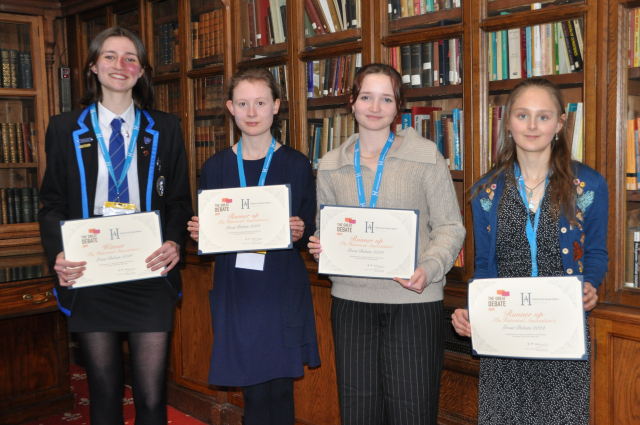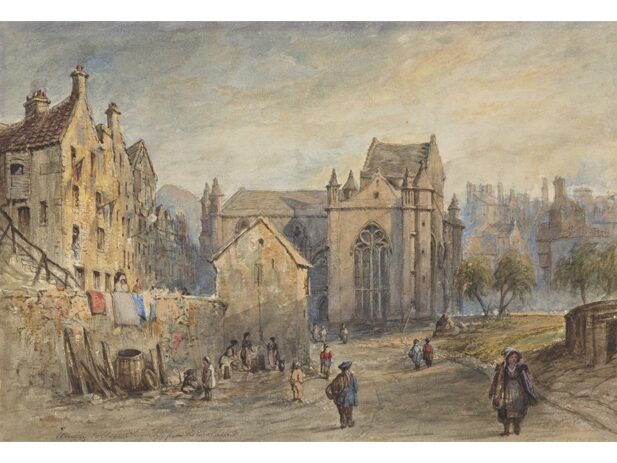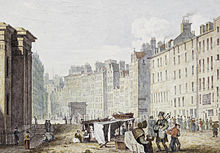
Well, I am curious.
The title, ‘A Cabinet for the Curious’, intrigued me, as did the opportunity to visit an historic house in Wardrop Court off the Lawnmarket. So I signed up for this OEC 2022 Summer Visit. I confess now that an evening spent, in the OEC’s words, with a “huge private library of amazing books, together with manuscripts, other artefacts, antiques and paintings” did not immediately draw my attention.
How wrong could I be!
This was no dry showing of old books but an active journey through some of Scotland’s literary history illustrated by amazing manuscripts collected by Dr William (Bill) Zachs and held in his library. I was not alone in expressing astonishment that two hours had passed so rapidly, so engrossed had we all become.
This was an enthusiastic presentation by a man keenly interested and knowledgeable: fascinating, far-reaching, detailed, showing great depth and insight. And what a host he was: Bill welcomed us by name into his library and served a choice of wine or tea with biscuits, remembering our names as the evening progressed. This set the tone for an informal and informative evening.
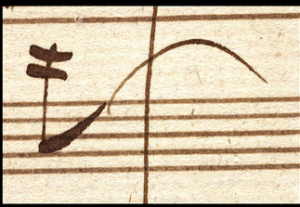
Dr Zachs proceeded to introduce a theme of ‘Beethoven, Burns and the Folksong’ pointing to a manuscript in a display cabinet. An intriguing combination, I had not linked both men. The manuscript was written by Ludwig van Beethoven, using a melody sent by the Scottish music impresario and publisher George Thomson. Beethoven had a keen interest in Scotland, although his health prevented him visiting. Thomson’s introduction to the works of Burns inspired several pieces of music. Recently Dr Zachs led a collaboration resulting in a performance filmed at Drumlanrig Castle in December 2021 and further recitals in various locations including the Georgian House in Edinburgh. Bill played Burns’s ‘Highland Harry’ during the evening, in two versions, each very different, composed by Beethoven.
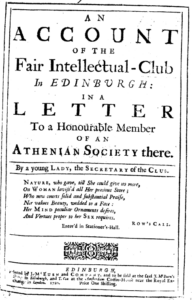
Over the course of the evening, Bill generously shared with us some of his treasures. Frankly, although I started taking notes, there were too many for me now to recall. Towards the end he invited us to record our favourite in his Visitors Book. Which to choose? A document, possibly unique, in which Sir John Cope invited his troops to pillage after his assumed rapid defeat of Bonnie Prince Charlie’s rabble of Highlanders at Prestonpans in 1745; Conan Doyle’s personal copy of ‘A Study in Scarlet’ with reviews pasted at the back; the Beethoven manuscript; ‘An Account of the Fair Intellectual Club in Edinburgh’ (pictured right) describing an early Enlightenment club for young women (1719); or one of the many other interesting documents.
My choice: a schoolbook prize awarded to the eight-year-old Conan Doyle when a pupil at an Edinburgh school. Why? The picture it left in my mind was of the excited child and his proud parents. Would I choose the same manuscript if I were to listen to the talk again? Perhaps not but I am content with my choice.
Dr Zachs concluded with his favourite noting that he does not choose this every time. That evening he selected a book that Robert Burns gave to the younger daughter of a family with whom he stayed with on his first journey to Edinburgh following the publication of the Kilmarnock Edition. Burns had asked the girl if she knew of this book (if I recall correctly, by an Aberdeen author). She replied, No. Burns bought a copy and rode back to give it to her, with the addition of a poem to her.
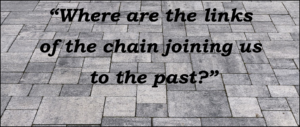
I kept in my head the words I had read as I waited in Wardrop Court ahead of our visit, those of Dorothy Dunnett, ‘Where are the links of the chain joining us to the past?’ engraved in a paving slab outside the nearby Writer’s Museum (left). We were certainly shown some that evening!
Would I like to attend again? Yes, and yes again. I recommend that you look out eagerly for presentations by Dr Bill Zachs.
By John Amoore
